Off-Grid
Top 10 Prepper Retreat Real Estate Tips | Need-To-Knows Before You Buy
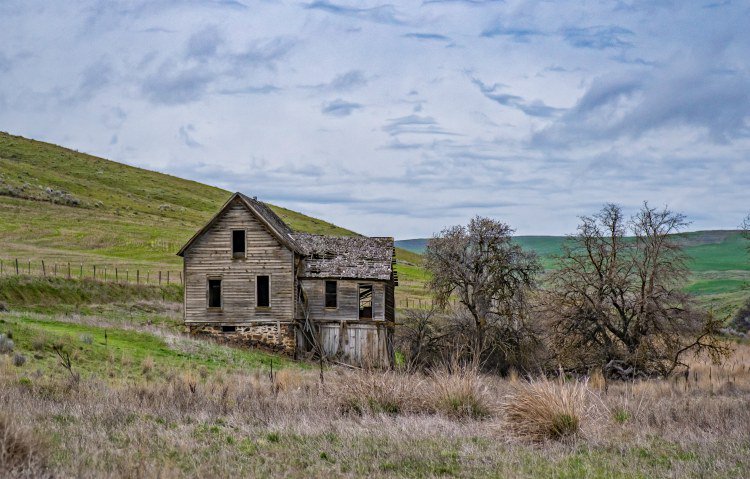
Browsing for the ideal property to turn into a prepper retreat or bugout location is an exciting step along the journey to self-reliance. Once you have a loan pre-approval letter in your pocket, things suddenly get very real. Finally, it's time to sign a contract on a piece of land. This is a new and extremely important stage of your life.
Top 10 Real Estate Tips For Your “Prepper Retreat”
It can be extremely easy to fall in love with a beautiful piece of land. This is especially true when walking the property and knowing it's within your budget range. But give yourself a hard reality check before ever tossing out an offer. All land is not created equal. Simply because the acreage has been used as a homestead or farm does not necessarily mean it can be turned into a fully-functional survival retreat.
While it's not difficult to find a real estate agent who specializes in the sale or farmland, finding one who is a prepper – or even understands the full needs of a prepper – is extremely rare. You may be without proper real estate professional guidance when grading the available properties for sale, so it's best to make sure you actually know what's necessary for the land to provide food, water, and be defensible, before ever stepping foot on any land listing.
Make a list of everything you want in your survival retreat. You've probably already done this dozens of times – at least in your head. Separate your needs and wants, write them down, and take your list each time you browse a piece of land. Take notes, take photos, and take another prepper, hunter, angler, security professional, or gardener with you if possible. If that isn't possible, share your notes, photos, and listing details with them after the tour but BEFORE making an offer on any property.
Top 10 Prepper Retreat Real Estate Tips:
1. Acreage

Don't throw away your hard-earned money on a piece of land that is beautiful but could never be transformed into a sustainable survival retreat.
The minimum acreage for a worthy prepper retreat is five acres. This amount of space will leave just enough room around the home and barn to create a modest garden and provide space for small livestock and, hopefully, a small pond or creek and a little wooded area for hunting and trapping. At least 10 to 20 acres is far more ideal, with 50 being extremely good. But, a budget will allow only what the budget will allow. Some homesteaders and preppers have gotten by fine, before a SHTF scenario on one and-a-half to three acres of land. Do not overextend your budget. The land is just one part of the expenses that will be coming your way after purchasing a retreat property.
2. Location
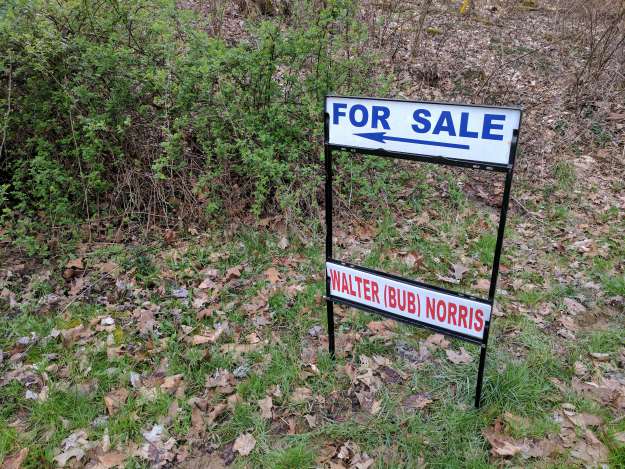
Tell your real estate agent you only want to view land located on the backside of nowhere, preferably with a home and barn that can't be seen from a road.
Unless purchasing a substantial amount of land, in excess of 100 acres, the prepper retreat should not border any high-traffic roads or be within one hour from a city. Ideally, the home should not even be visible from the country dirt road which leads past your survival homestead.
3. Water
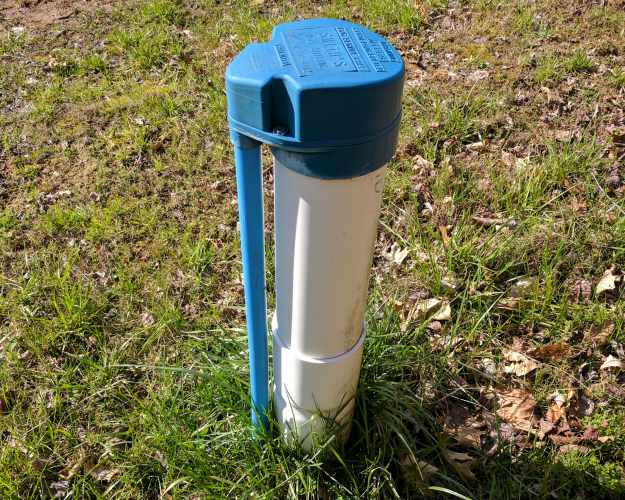
If the real estate agent or private seller tells you the property has a well, you'll see something like this near the road. Water is too essential to take anyone's work for granted, so require a water quality inspection as part of the sales contract terms.
Even if the property has county water line access or a well, that will not likely save you and your family during a long-term disaster. Converting, or having the tools and the ability to convert, the well from an electric to a manual pump helps. However, having a spring-fed pond, or a creek which remains wet year around, is highly recommended. A man-made pond with decent run-off can be built upon the property. If the price is right, and the land meets all other criteria, building a pond could make the parcel a keeper.
4. Defensive Position
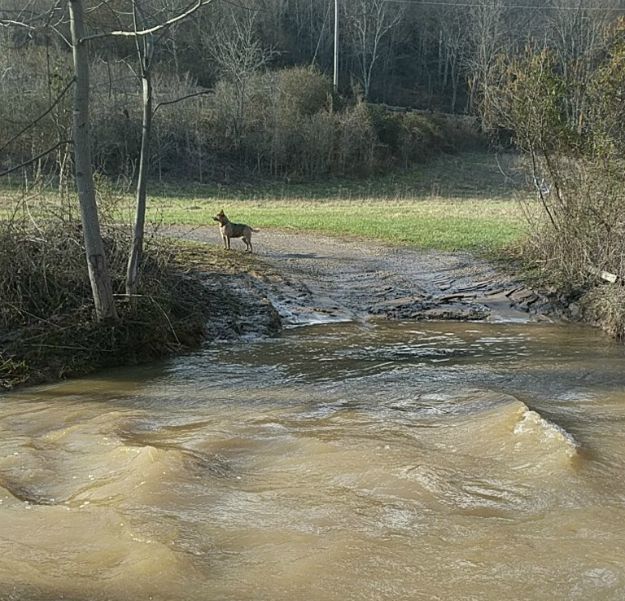
Most folks would consider crossing a creek that floods and is the only vehicle access point to the home a really bad thing – but not preppers. Don't forget to talk to neighbors about the seasonal water levels in the creek to better determine if water is truly present year around.
The property should contain a significant amount of steep cliff and ravines, rock formations and outcrops, and rugged terrain. Such a parcel of land will prevent vehicles from getting onto the property, deter attackers on foot, and slow down ATV vehicles from getting too close undetected. A home on a hill provides a perfect vantage point for the prepping family or group’s security patrols. If you have to cross a creek which could be dammed up and flooded to get near the home, the property should get an “A+” on the defensive position and location categories.
5. Power
A flowing creek could be harnessed for hydropower if the home and waterway are within a feasible distance and the elevation is advantageous. Placing the home in an area with a southern exposure the bulk of the day, or at least positioned in a sunny clearing, paves the wave for a solar system. The system can then provide power to the home after a grid failure or other disaster which knocks out the electrical systems for the foreseeable future.
6. Heat
Preppers love redundancy. “Two is one, and one is none,” as my husband always says. A multi-fuel generator is awesome, but eventually, the gas and diesel fuel stockpiles will run dry. Making your own biodiesel fuel and converting a generator to run on it is a superb and potentially life-saving idea. However, even keeping this in mind, the survival retreat should be comprised of 50 percent forest. This allows you plenty of firewood, hunting among mature trees, and ample opportunities to trap wild game as well.
7. Work
Don't forget to take into consideration if you'll be working off the property. The travel distance, both by vehicle and on foot, should be considered before buying a bug out location.
8. Sanitation
How you might set up a waste disposal system is another important thing to consider when touring the property. Whether you're buying land for use on an off-grid prepper retreat or for a survival home that's on the grid now, but preparing not to be during a TEOTWAWKI disaster, sanitation must be considered when purchasing land. Permitting human and livestock waste to leach into the pond or creek will quickly cause it to become contaminated. This spread of germs can be deadly now, but especially after a doomsday scenario comes to pass. A gravity-fed system, complete with composting commodes, is the most off-grid friendly and affordable option – but an old-fashioned and properly positioned outhouse will work as well.
9. Food Production
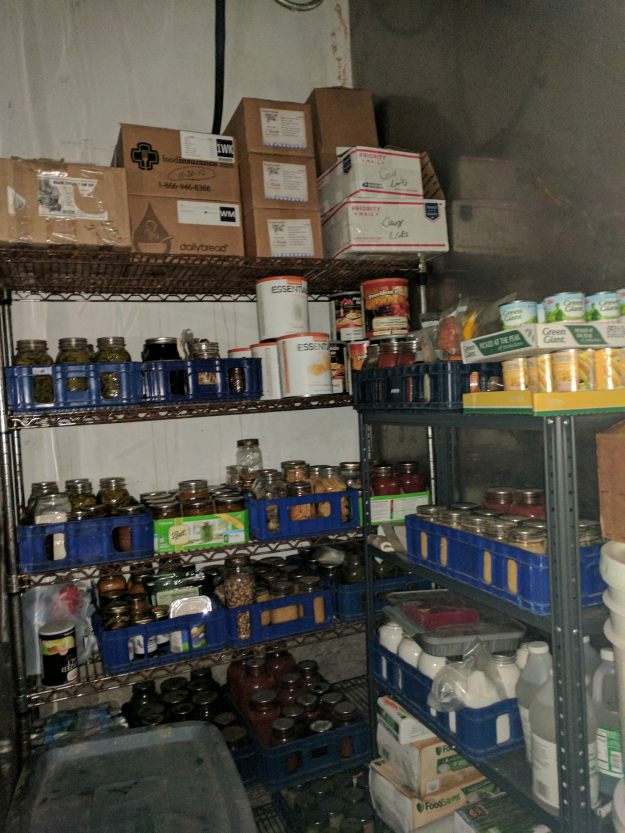
You can store a lot of food to prepare for when SHTF as well.
Crops, as well as medicinal herbs and plants can be grown in a traditional row garden, but can – and should– also be grown near the home in pots, or vertically in barrels, and in a permaculture (food grown in the forest) manner as well. Survivalist Gardener Rick Austin recommends camouflaging your crops. That way, they won't be detected and stolen by the marauding hordes that will surely comb the countryside after the SHTF. Building at least one root cellar should be near the top of the prepper retreat to do list after a property is purchased.
10. Livestock
Raising both large and small livestock is ideal, but the budget will dictate how much land and how many animals can be purchased. Keeping the barn and coop as secluded as the food is strongly encouraged. Allowing the animals to routinely graze in a visible pasture during good times should not occur unless it's completely unavoidable. Passersby will see them and remember where to find meat when things turn tragic. Do not buy more livestock than can winter themselves over on the hay and grain you have on hand. The only exception is if you can butcher them yourself regardless of access to power.
Have you bought land before? Do you have any tips to share? Leave them in a comments below!
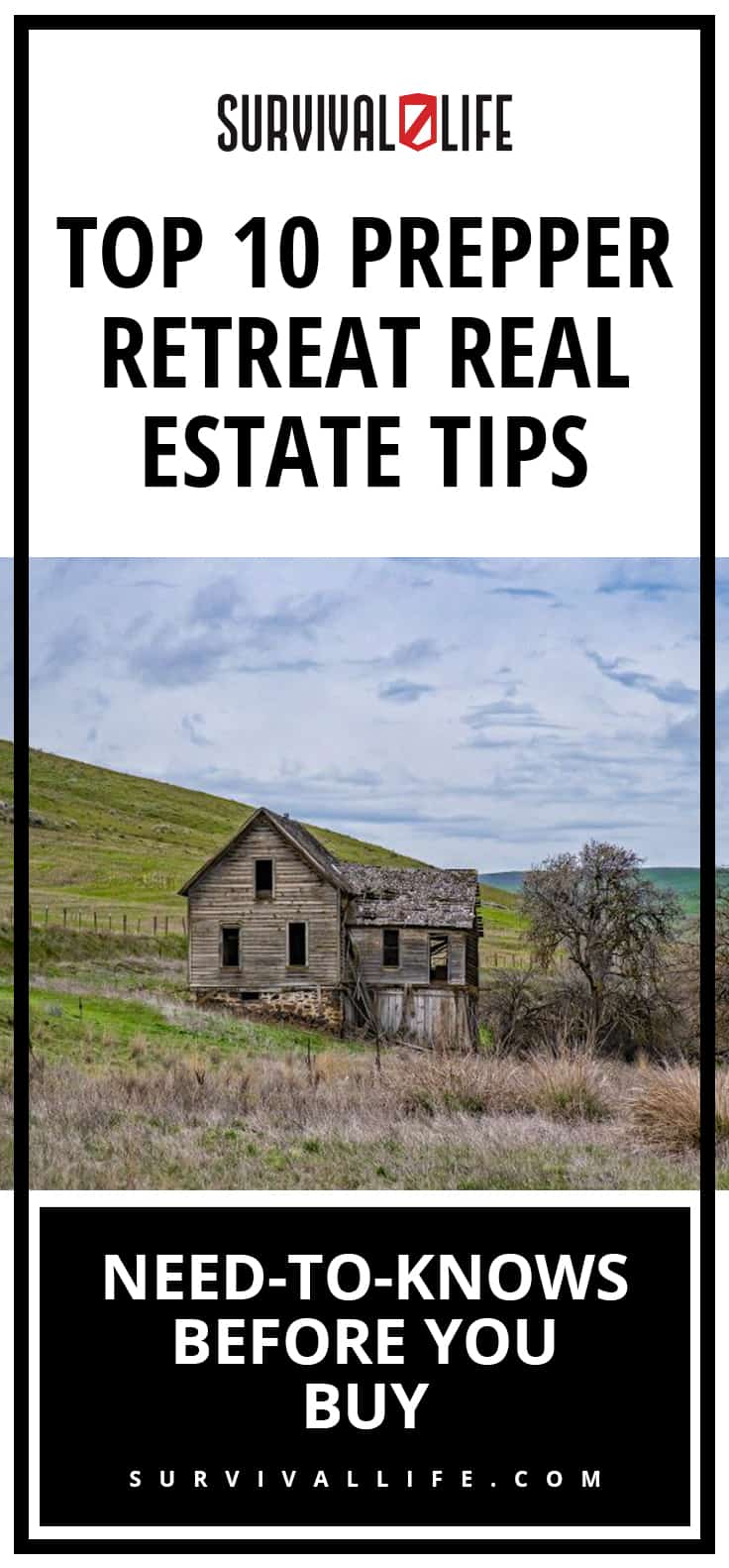
Up Next: Leatherman Squirt PS4 Review | Survival Multi Tool
Check out awesome Survival Life deals by shopping the Survival Life Store here.
Follow us on Facebook, Instagram, Twitter, Pinterest, and Tumblr!
-

 Paracord Projects1 year ago
Paracord Projects1 year agoParacord Projects | 36 Cool Paracord Ideas For Your Paracord Survival Projects
-

 Paracord Projects2 years ago
Paracord Projects2 years agoHow To Make Paracord Survival Bracelets | DIY Survival Prepping
-

 Medical Care2 years ago
Medical Care2 years ago21 Home Remedies For Toothache Pain Relief
-

 Knife Laws1 year ago
Knife Laws1 year agoAre Switchblades Legal? Knife Laws By State
-

 Do It Yourself2 years ago
Do It Yourself2 years agoSurvival DIY: How To Melt Aluminum Cans For Casting







Pingback: Prepper Retreat Real Estate Tips | Ready One
Pingback: What to look for when shopping for bugout or prepper real estate - Tyranny News
WhereEaglesDare
July 25, 2017 at 9:44 AM
I really enjoyed this article. I’m stuck where I’m located, still about 2 hours from a sizable city. But this article does give me a few things I need to work on. Good luck all…….
Pingback: Top 10 Prepper Retreat Real Estate Tips You Need-To-Knows Before You Buy - Survival Journal
Michael Robinson
December 5, 2017 at 3:23 PM
I appreciate everything that you had to say here in regards to finding the right property. Just like you explained, sometimes it is easy to fall in love with a home or a piece of land, but you need to make sure that it is what you need and can become what you want it to be. When I get older, I want to build a home all the way up in the mountains, and so I will need to make sure that the land that I choose can accommodate all of my dreams. Thank you for the post, and I will make sure that I check the acreage before I make a final decision.
Marek Stachura
December 21, 2017 at 4:43 AM
Finding a home place with the good area is a daunting task for first-time buyers. You described very well what to check before buying a real estate property. Thank You!
Rodney
July 10, 2018 at 10:51 AM
You will also need to check for and verify if and what easements and ingress egress easements may apply to the property as well as any and all possible restrictions / convents. And if there are any mineral or water rights issues.
Troy
July 13, 2018 at 5:23 AM
Don’t forget to put your structure high enough up in elevation so you don’t get flooded out in the spring. ☔
.Ed
July 20, 2018 at 5:56 PM
It is very interesting how none of the so called prepper sites don’t mention the fact that EVERY sq. ft. of land in the US is photographed at least once a month by satellite . Welcome Big Brother, especially with the executive order obama signed in 2012 giving the government the LEGAL right to take ALL food, All food production, All equipment, land and animals along with the skilled workers to produce food, All transportation and fuel assets in the time of crisis. Who determines what a crisis is? Is everybody buying all this freeze dried food with cash? Is everybody going to have the stones to pull the trigger should the hoards or the government come knocking on their door? Does anybody think their solar panels can’t be seen from the ground or the air? Why do people think they will have time to clean out their bank, brokerage or asset accounts before everything gets turned off? Why do people think they’ll be safe for more than a week when their bolt hole is an hour from a major city or 6 months hiding up in Idaho?
The majority of the information I have seen published all over the internet is for people to be prepared for a short term hiccup of 3 days to a week not a disaster which could be a month, a year or way longer. Most people reading this know the world has issues and they’re coming to a head. The stock market is being manipulated to false highs. Our electrical grid is antiquated and vulnerable, it has been for 30 years. It won’t take an EMP attack from north Korea to wipe us out or nukes from Russia. All it will take is some 14 year old kid in grannys basement to plant a virus in the grid system and life as we know it is over. What about Monsanto who has taken a 3 inch cob of corn and genetically modified it to be 12 inches instead and allow it to withstand chemicals that kills all other plants, there we go ,drones and roundup. Why can’t they make it back into a 3 inch cob again as well as soybeans, wheat, sugar and the whole food supply gets planted all around the world but before we realize we are only going to get a 10% yield it is too late to replant. We as people and our government are our own worst enemy and those seemingly helpful people ( those selling all the prepper info and products) are only delaying the inevitable.
I realize most people don’t have the finances to be truly prepared but there are a LOT of people being duped into believing they can hide, survive and be relatively safe ANYWHERE in North America. I see ads for bolt holes ( bug out location, home) 20 minutes from Pittsburg or an hour out of DC, what a joke because unless you’re the president it isn’t going to work. Idaho, Montana, Washington and Oregon are hot places to go for a bolt hole, again delaying the inevitable. You people might get by for 6 months or a year if you are really lucky. Remember people there have been riots and looting around the country because snowflakes didn’t like the republican nominee for president what do you think will happen when facebook and twitter go down much less government checks stop coming or the ATM doesn’t work and the grocery stores have all been looted? The hoard is coming for YOUR stuff. Guns will be of minimal use in and around larger cities because you don’t have enough guns, ammo or people willing to kill to fight off the hoard for an extended period.
If you have the means and want to be truly prepared, silver and gold are good things to have BUT you need to get it offshore as well as your bolt hole. When calamity hits the US it will last a lot longer than most are prepared for. This is my top 10 list of things that should be considered before buying property and here they are.
1. Get out of the Northern Hemisphere.
According to answers.com 90% of the population lives above the equator so it leaves double the population of the US living on the whole bottom half of the planet.
All major conflicts since the Spanish invaded South America almost 5 centuries ago have been up north.
The land, water and air are polluted, degraded to the point organic food is polluted and less than 1/2 of the nutritional value of 50 years ago due to our farming practices since the advent of the industrial revolution. Cities all over the US are discharging raw sewage into our lakes and oceans so they don’t have to pay to upgrade or treat it. Milwaukee Wisconsin ran it’s storm and sanitary sewer in the same pipes so when it rains the overflow goes right into lake Michigan hence all the E coli along the western shore every summer. The Florida coast is littered with cities that are dumping millions of gallons a day into the ocean and the gulf. Check out the blue green algae all over the Florida coast and no, piping it out 2-3 miles into the ocean does no good. Nobody is talking about Fukushima yet the whole north pacific is radioactive while the dumping of the waste continues.
2. Find a country with strong property rights for expats with a temperate climate preferably at elevation because of the bugs. Check the carrying costs as they very from country to country. Look in an agricultural area of the country if you wish to be self sufficient but remember things are different. I chose Ecuador for the reasons mentioned above and some others. I am in south central Ecuador, 4 hours drive from Guayaquil and 10 from Quito, the two population centers which are home to over 1/2 the population. People in this region have families of 5-6 living off of an acre of land, give or take and it provides them with food to spare and sell at the local markets. They have been doing it for 100s of years.Like anywhere there is good and bad land. The temperatures here range from about 50 degrees on the coolest morning of the rainy season to about 80 degrees on the warmest day of the dry season. No need for heating or cooling in your house. I have seen some mosquitos in the last year but haven’t been bitten yet. I believe it is because of the 5400 ft. elevation. I don’t have to can food or freeze it because it’s always fresh. The taxes on my land (16 acres) was $37 for 2017. The best part is my security system is a 20 pound mutt who barks a little when the neighbor kids come home from school or the occasional truck that drives by. No need for a rack of ARs and a million rounds of ammo here.
3 WATER, I can’t stress this enough, I have irrigation canals that are over 100 years old 2 springs a creek and frontage on a main river. Plenty of water for anything including a multilevel hydro setup should I chose to go off grid.
4 WELCOMING locals.. I can’t stress this enough. Many countries are not very friendly to Americans. This is why I said no to a number of countries, Mexico, Columbia, Costa Rica and Panama to name a few.
5. EASE of travel. At this time there are direct flights from JFK. Miami Ft. lauderdale, Houston, Dallas to name a few. No need for Americans to have a visa, get 90 days per year on passport alone.
6. BANG for your buck.. There are deals here but land costs are on the rise as well as construction costs. As of july 2018 you can custom build a home for around $80 psf Dependent on taste and amenities it could run more or less but overall rising at about 12-15% a year.
7. FIND a GOOD real estate agent to help you because you aren’t in Kansas anymore Dorthy They say there is an MLS network here but it’s a joke.Some will advertise teaser properties that aren’t even for sale or not give you the time of day. I’ve found for my purpose the agents that also have build to suit, maintenance programs and non bank financing are the ones looking to forge lasting relationships and if you are not full time residents you won’t have to find trustworthy caretaker with little to no knowledge of local assets.
8. TAKE the time for an exploratory visit. I don’t agree with the basis for some of the ratings because they leave out important details because they are geared towards retirees not preppers but they have a lot of information. First resource is International Living.(.com) They’ve been in the business since the late 70s and can give useful info on cost of living, climate, activities and resources in different countries. Craigslist is used down here for a good chunk of FSBO properties as well as agents. Choosing Ecuador there is a resource I used before and after choosing to buy here is GRINGOPOST.COM it is for potential and current expats, a wealth of information on many topics where you can post questions you may have, although answers sometimes are less than accurate but good none the less.
9.. Try to find a place where your bolt hole will not only be a bug out but an investment. Property values are on the rise here as well as other places but if you don’t have cash to purchase but a 401k or IRA they can be self directed to purchase and build on your land. One of the best parts of being offshore is the US government cannot take your property. This is actually considered an act of war. Passbook savings are paying 5,5-7% and CDs are paying more, just to park your money. Best part is the Ecuadorian economy runs on the US Dollar so no exchange garbage.
10.. EASE of residency.. There are many countries which I would never plan on being a resident but many south American countries welcome US residents and will give residency and even citizenship to with less red tape than others. You may not be thinking about such things but it doesn’t hurt especially like in my case I came here to research the area and didn’t want to leave so it is my plan to retire here in a very short time.
This is my top 10 list aI hope it brings a serious non topic into the light of day.
medic
September 28, 2018 at 4:44 PM
That’s why Rockcastle in rural KY is a natural place to look if you are east of the Mississippi this 2000 acre property has it all along with50 miles of caverns and the people settling there have the mean and expertise to defend what they have and all the natural resources to keep hundred
or so people living well.
Pingback: オメガ 梅田